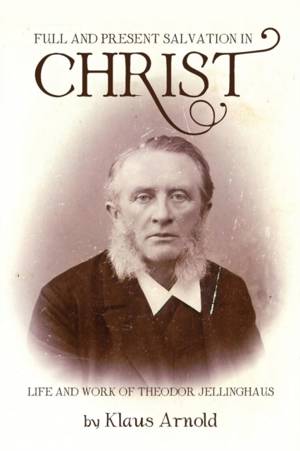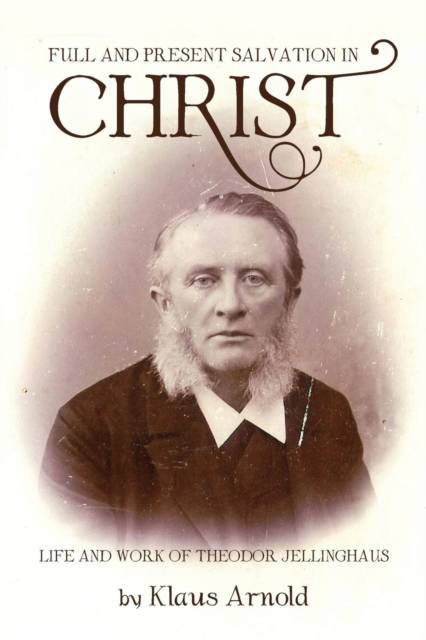
- Afhalen na 1 uur in een winkel met voorraad
- Gratis thuislevering in België vanaf € 30
- Ruim aanbod met 7 miljoen producten
- Afhalen na 1 uur in een winkel met voorraad
- Gratis thuislevering in België vanaf € 30
- Ruim aanbod met 7 miljoen producten
Zoeken
Full and Present Salvation in Christ
Life and Work of Theodor Jellinghaus
Klaus Arnold
Paperback | Engels
€ 40,95
+ 81 punten
Uitvoering
Omschrijving
Theodor Jellinghaus (1841-1912), theologian and leader of the Heiligungsbewegung (Holiness Movement), was one of the fathers of the Gemeinschaftsbewegung (Fellowship Movement) in Germany, a new organized expression of the Pietist tradition in nineteenth-century German Protestantism. The key event for the life and work of Jellinghaus was his participation in the convention on Christian holiness in England in 1874. He wanted to bring the new insights he gained there to revive the Protestant and Pietist traditions in the land of the Reformation. Jellinghaus believed that the doctrine of sanctification by faith in Jesus Christ, which he had heard in England, was an indispensable consequence of and necessary accompaniment to a clear doctrine of justification. His special concern in the Gemeinschaftsbewegung was the education of laypersons. The last phase of his life was characterized by crisis and illness, which were related to each other and directly and indirectly led to his so-called recantation. We can only do justice to the overall persona of Jellinghaus if we differentiate between the former (healthy) and later (ill) Jellinghaus. He has to be viewed in the contradictions and tensions within the development of the Heiligungsbewegung and the Gemeinschaftsbewegung as well as his theological teachings. This book is the first comprehensive treatment of Jellinghaus, which not only focuses on his doctrine of sanctification, but assesses his overall life and work, that is, his theological system and personal involvement in and contribution to the development of the Heiligungsbewegung and Gemeinschaftsbewegung in Germany.
Specificaties
Betrokkenen
- Auteur(s):
- Uitgeverij:
Inhoud
- Aantal bladzijden:
- 212
- Taal:
- Engels
Eigenschappen
- Productcode (EAN):
- 9781532615016
- Verschijningsdatum:
- 11/04/2018
- Uitvoering:
- Paperback
- Formaat:
- Trade paperback (VS)
- Afmetingen:
- 152 mm x 226 mm
- Gewicht:
- 299 g

Alleen bij Standaard Boekhandel
+ 81 punten op je klantenkaart van Standaard Boekhandel
Beoordelingen
We publiceren alleen reviews die voldoen aan de voorwaarden voor reviews. Bekijk onze voorwaarden voor reviews.








